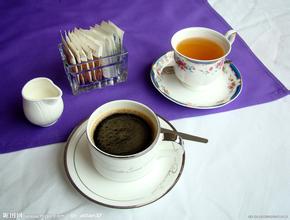Introduction to the Flavor of Fine Coffee beans in the Coffee Variety producing area of La Tisa Manor in Guatemala
Coffee was really introduced into Guatemala in 1750 by Father Jesuit, and the coffee industry was developed by German colonists at the end of the 19th century. Today, most of the coffee industry's production takes place in the south of the country. There are seven major coffee producing areas in Guatemala, and the flavor of coffee produced in each area is different, but to sum up, Guatemalan coffee shows a mild and mellow overall texture, elegant aroma, and special and pleasant acidity similar to fruit acid, becoming the aristocrat of coffee, among which Antigua Classic Coffee (AntiguaClassic) is highly recommended by global coffee connoisseurs.
Antigua is the oldest and most beautiful city in America. As early as 1543, Antigua was the capital of all colonial times in Central America, and the Government House of Spain was also set up here. The whole city of Antigua was destroyed after the great earthquake of 1773, so the capital was moved to Guatemala City. Antigua is about 40 kilometers west of Guatemala City. Colonial buildings were damaged by the earthquake, and the whole remains after the earthquake is a living museum of history.
The aroma of coffee liberates all forms, hearts and national boundaries. Through coffee, the mood leaves the country at any time and lands in a strange country half a world away. Even at the end of the world, you can share a mood. Antigua was the capital of the Spanish colonial period in 1543. Although this emerald-like valley has been surrounded by active volcanoes in all directions, layered, deliberately waiting and full of dangers since ancient times, its vastness, vastness and fertility still tempted Spaniards to build a capital in the precarious cliff valley.
The volcano once destroyed the once-prosperous capital in an instant, robbing it of all its prosperity and beauty overnight. After this subversive mountain city, the splendor has disappeared for more than 200 years, and Antigua has never swaggered again. After being dull, Antigua is now run by the last remaining Indians. These hardworking Indians became later coffee producers. They not only discovered the rich and attractive unique smell of Antigua coffee, but also brought it to people all over the world. Today, Antigua coffee enjoys the reputation of the best quality coffee in the world, and is praised by coffee connoisseurs as the best and most distinctive coffee in the world. Guatemalan coffee has a strong aroma, even if you don't drink it. Smelling that aroma is already a kind of enjoyment. Antigua coffee has a rich and velvety mellow, rich and lively aroma, and fine sour taste. When the attractive fragrance lingers on the tip of your tongue, there is an indescribable mystery. You may feel dull at the first sip, but as the coffee cools down, you will find it slightly sweet and be surprised by its depth.
Antigua coffee is popular with most coffee lovers only because of its distinctive aroma. Because it is planted in the hills of volcanoes, it can retain its own characteristics more than Costa Rica, the main reason is that it has more geographical and climatic advantages than Costa Rica. Guatemala is located in the tropics, but due to the relatively high altitude, the climate is mild, it is a subtropical climate. Under the influence of this climate, coffee trees blossom and bear fruit more slowly than coffee trees in other parts of the world. However, the mild climate and fertile soil make it an excellent environment for growing coffee.
The coffee industry, run by the Mayans, once boomed Guatemala's economy and dominated the national economy. Unfortunately, the political situation in Guatemala is not good for these coffee growers. High output is usually a sign of a country's overall economic prosperity. However, coffee production in Guatemala has declined relatively, at 700kg per hectare, compared with 900kg per hectare in El Salvador and 1700 kg per hectare in Costa Rica. Guatemalan coffee exports are controlled by private companies, but the National Coffee Council controls other sectors of the coffee industry.

Important Notice :
前街咖啡 FrontStreet Coffee has moved to new addredd:
FrontStreet Coffee Address: 315,Donghua East Road,GuangZhou
Tel:020 38364473
- Prev

Introduction to the flavor and taste of fine coffee beans in the variety producing area of Arusha Coffee Manor in Tanzania
Coffee production in Tanzania: coffee bean-shaped berry coffee in Tanzania produces a lot of coffee and is said to be more fragrant than ordinary coffee. Generally speaking, coffee beans in Tanzania have extraordinary quality. For example, the fine Tanzanian AA AA coffee (ChaggaAA), produced in the Moshi area near Mount Kilimanjaro, is full with its grains.
- Next

Introduction to the Flavor of Fine Coffee beans in the Coffee Variety producing area of Incht Manor, Guatemala
Guatemala is located in the tropics, the northern and eastern coastal plains have a tropical rain forest climate, the southern mountains have a subtropical climate, the year is divided into two dry and wet seasons, with the wet season from May to October and the dry season from November to April of the following year. The narrow and fertile flatlands on the Pacific side of Guatemala have a tropical climate. The central plateau is also the cultural center of Guatemala, where the year-round temperature ranges from 1300 to 1800 meters.
Related
- Does Rose Summer choose Blue, Green or Red? Detailed explanation of Rose Summer Coffee plots and Classification in Panamanian Jade Manor
- What is the difference between the origin, producing area, processing plant, cooperative and manor of coffee beans?
- How fine does the espresso powder fit? how to grind the espresso?
- Sca coffee roasting degree color card coffee roasting degree 8 roasting color values what do you mean?
- The practice of lattes: how to make lattes at home
- Introduction to Indonesian Fine Coffee beans-- Java Coffee producing area of Indonesian Arabica Coffee
- How much will the flavor of light and medium roasted rose summer be expressed? What baking level is rose summer suitable for?
- Introduction to the characteristics of washing, sun-drying or wet-planing coffee commonly used in Mantenin, Indonesia
- Price characteristics of Arabica Coffee Bean Starbucks introduction to Manning Coffee Bean Taste producing area Variety Manor
- What is the authentic Yega flavor? What are the flavor characteristics of the really excellent Yejasuffi coffee beans?

